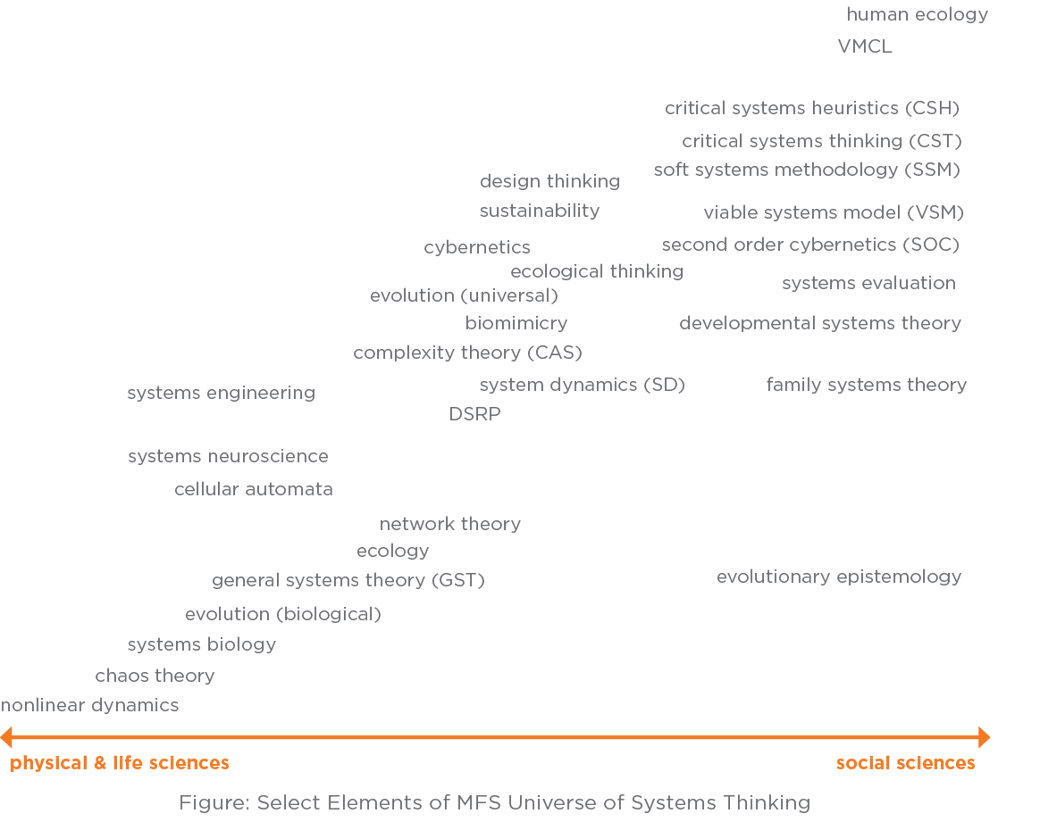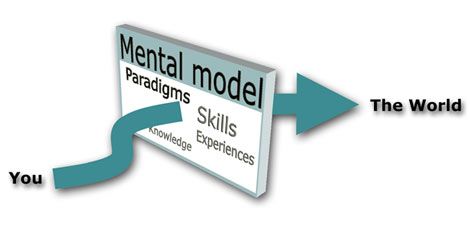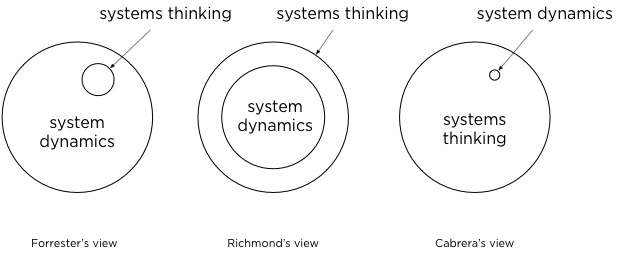Democratizing Systems Thinking
"The whole of science is nothing more than a refinement of everyday thinking." - Albert Einstein[1]
In a previous post I cautioned newcomers to the field against concluding that system dynamics = systems thinking. The question "What is systems thinking?" was one I tackled as a doctoral student at Cornell. I struggled with the bewildering array of answers to this question, and the multitude of approaches, theories, and methods that go under the rubric of systems thinking. In my dissertation work, I coined the term "MFS Universe,"[1:1] which stood for Midgley,[1:2] Francois,[1:3] and Schwartz.[1:4] It represented, at the time, the most comprehensive review of the systems thinking landscape. Below is a sampling of some of the more generative methods and approaches of systems thinking.

Even after writing the dissertation, in which I offered DSRP as four universal principles underlying all of systems thinking, it took several years of working with my wife Laura (an expert in translational research) teaching systems thinking to diverse groups around the world, to arrive at the point of writing our most recent book. But that journey has given us confidence that systems thinking is not only teachable, it is universally useful for solving both everyday and wicked problems. As such, it is our mission to democratize systems thinking. Systems thinking can help us solve everyday and wicked problems, increase our personal effectiveness as human beings, and transform our organizations.
SYSTEMS THINKING WITHOUT SYSTEMS THINKERS WILL CHANGE NOTHING. FOR SYSTEMS THINKING TO TRULY WORK, ALL PEOPLE NEED TO BETTER APPROXIMATE
REALITY NOT JUST SCIENTISTS WITH THEIR CONTROLLED EXPERIMENTS, BUT CITIZENS WITH THEIR DAILY EXPERIMENTS.
To contextualize this democratizing impulse, I should explain that I view DSRP as the foundational components of cognition itself. While I sought in my dissertation to isolate unifying principles for the ST field, that is not my sole aim. DSRP seeks to create better, more self-aware or "metacognitive" thinkers. Indeed, one of the three purposes of our research lab is to facilitate public understanding of systems thinking--the research, the tools, and the technology.
Its title notwithstanding, you will see from the book that it is the furthest thing from "Systems Thinking for Dummies." It guides readers through the field, explains how ST underlies everyday cognitive and organizational tools, and most importantly, makes the case that DSRP can be profitably applied to all sorts of complex problems. We are proud that we have successfully taught DSRP to preschoolers up through post-docs, to corporate executives and to groups in different branches of government. Systems Thinking Made Simple doesn’t mean that we’re going to oversimplify the field. It means that we will show how ST emerges when we focus on a simple set of rules. After years of searching for unifying principles, many of the top experts and practitioners in the field of systems thinking have embraced DSRP as universal to all systems thinking methods.
A final note on our motivations relates to the final two chapters of Systems Thinking Made Simple, which demonstrate how systems thinking can be applied to produce better (more ethical, prosocial) human beings and more effective organizations. This latter application is in many ways most aligned with my ultimate purpose. I am excited by the potential of systems thinking to change our world for the better, but systems thinking without systems thinkers will change nothing. The vision of our lab is 7 billion systems thinkers: we hope you can join in that goal.
.png?width=150&height=150&name=CRL%20GOAT%20Logo%20(4).png)


